This article was co-authored by Lyssandra Guerra. Lyssandra Guerra is a Certified Nutrition & Wellness Consultant and the Founder of Native Palms Nutrition based in Oakland, California. She has over five years of nutrition coaching experience and specializes in providing support to overcome digestive issues, food sensitivities, sugar cravings, and other related dilemmas. She received her holistic nutrition certification from the Bauman College: Holistic Nutrition and Culinary Arts in 2014.
There are 11 references cited in this article, which can be found at the bottom of the page.
wikiHow marks an article as reader-approved once it receives enough positive feedback. In this case, several readers have written to tell us that this article was helpful to them, earning it our reader-approved status.
This article has been viewed 85,568 times.
Vitamin A is essential for feeling your best. It improves skin condition and vision, and boosts your immune system so your body can fight disease and even some types of cancer.[1] Vitamin A is present in some foods we eat, like carrots, liver, dark fruits and veggies, eggs, and more, and most people get all the vitamin A they need from their diet. Some people, however, do benefit from supplements. If you are taking a vitamin A supplement, maximize your body’s ability to absorb it by getting the right amount, knowing what to eat, and knowing what to avoid.[2]
Steps
Enhancing Absorption
-
1Eat a meal containing fat with your vitamin. Vitamin A is a fat-soluble vitamin that is best absorbed by your body when you eat it with foods containing fat. Good options are red meat, liver, cream or cheese, whole milk, olive oil, and fatty fish like salmon. If your overall diet is very low in fat, you may not absorb vitamin A efficiently.
- Eating a diet high in saturated fat causes health problems like high cholesterol, weight gain, and heart issues. The important thing is to eat a balanced diet, with enough fat but not an unhealthy amount. Your doctor can help you with this. Ask, "Can you help me come up with a healthy diet plan?"
-
2Avoid taking vitamin A supplements on an empty stomach. Taking your supplement when you haven’t eaten anything, or even with very low-fat foods, may cause stomach upset, indigestion or heartburn. This also increases the chance that the vitamin could pass through your system without being fully absorbed by your body.Advertisement
-
3Eat avocado. Avocado contains a high amount of “good fats,” and studies have shown this food might help your body absorb vitamin A. Adding one whole avocado to your meal may even double the amount of vitamin A you can absorb.[3]
-
4Get enough zinc. You need to have enough zinc in your diet in order to fully absorb vitamin A. Women need at least 8mg every day (up to 10 or 11mg if pregnant or breastfeeding), and adult men need 11mg daily.[4] Foods high in zinc include beef, pork chops, chicken, crab, oysters, lobster, fortified cereals and oatmeal, cashews, almonds, swiss cheese, chickpeas, and kidney beans.[5]
Eliminating Barriers to Absorption
-
1Treat digestive conditions medically. Even if you have enough fat in your diet, you still won’t absorb vitamin A well if you have a medical condition that limits your body’s ability to absorb the fats you eat. Crohn’s disease, irritable bowel syndrome, celiac disease, disease of the liver or gall bladder, cystic fibrosis, and problems with your pancreas can affect your fat absorption. These will require treatment or additional vitamin A supplementation to get your RDA of vitamin A.
- How you absorb fat is also decreased if you have had part or all of your stomach removed, such as after certain kinds of weight-loss surgeries.
-
2Drink less alcohol. Alcohol can interfere with your body’s ability to absorb vitamin A (and other needed nutrients).[6] Stop drinking alcohol altogether, or limit your alcohol intake to, say, one glass daily to maintain good health and promote vitamin absorption.
-
3Avoid weight-loss medications. The prescription medication Orlistat is used to help people lose weight, but because of how it works it can interfere with the absorption of fat-soluble vitamins, including vitamin A.[7] Olestra, a fat substitute sometimes added to food, can cause similar problems. Avoid these if you require a vitamin A supplement.
-
4Change your medicines that block vitamin A absorption. If you are at risk for vitamin A deficiency, speak to your healthcare provider about any medications that you are taking. Some cholesterol medicines called bile acid sequestrants, like cholestyramine and colestipol, can block vitamin A absorption; another kind of cholesterol medicine, called statins, can actually help vitamin A absorption. Omeprazole (Prilosec) is used for heartburn and reflux, and can cause absorption issues, as can the antibiotic Neomycin. Switching to different medicines with your doctor's advice can help.
- Discuss your medicines and your vitamins with your doctor, to avoid any interactions. Say something like, “My dietician wants me to take a vitamin A supplement. Will that cause any problems with the medicines you prescribe to me?”
Getting Enough Vitamin A
-
1Get your recommended dietary allowance (RDA) of vitamin A. The U.S. Food and Drug Administration and other government agencies make suggestions based on research about how much vitamin A you need each day. Typically, adult men need 900 micrograms (3,000 international units, or IU) and adult women need 700 micrograms (2,300 IU) daily.[8] Make sure you’re getting the amount you need.
- Pregnant women require slightly more: 770 micrograms (2,600 IU) daily. When lactating and breast feeding, the RDA increases to 1,300 micrograms of vitamin A daily (4,300 IU). These requirements are for women age 19 or older.
- The RDAs for children have been set by the U.S. Institute of Medicine and the World Health Organization, and they vary depending on the child’s age.[9] Ask your doctor if your child needs additional vitamin A, and how much they should receive.
- The current RDA numbers have been in place since 2002, but some supplement packaging might still list the old dosage of 5,000 IU.
-
2Eat foods high in vitamin A. Good natural sources of this vitamin are meat products such as beef kidney and liver, eggs, and dairy. This form of vitamin A is called retinol and it is in a form that the body can use. Be sure to also get vitamin A from fresh produce like carrots and other yellow or dark vegetables, also known as carotenoids, which are precursors of Vitamin A.[10] Great sources are broccoli, kale, spinach, sweet potato, squash, cantaloupe, dried apricots, mango and sweet red peppers.[11]
-
3Take a daily multivitamin. Multivitamins often contain 100% of the RDA for vitamin A, and taking one daily multivitamin is an easy way to get all the supplements you need. Choose a vitamin that states on the label that its vitamin A is at least 20% beta-carotene. Beta-carotene is a precursor to vitamin A found in some foods and is safe even in large quantities. Multivitamins are available at your local drug store. You may want to ask your doctor, dietician, or pharmacist if they recommend a certain brand.
- Choose a multivitamin that provides close to 100% of the daily need for all the vitamins and minerals it contains, rather than one that has a “megadose” of 500% of one and only, say, 15% of another.[12]
- Do not take an additional vitamin A supplement unless you are directed by a doctor to do so. Vitamin A toxicity can occur if you consume very high levels. The amount found in a daily multi-vitamin combined with a healthy diet is enough for most people.
Expert Q&A
Did you know you can get expert answers for this article?
Unlock expert answers by supporting wikiHow
-
QuestionHow can I safely start taking a new vitamin supplement?
 Lyssandra GuerraLyssandra Guerra is a Certified Nutrition & Wellness Consultant and the Founder of Native Palms Nutrition based in Oakland, California. She has over five years of nutrition coaching experience and specializes in providing support to overcome digestive issues, food sensitivities, sugar cravings, and other related dilemmas. She received her holistic nutrition certification from the Bauman College: Holistic Nutrition and Culinary Arts in 2014.
Lyssandra GuerraLyssandra Guerra is a Certified Nutrition & Wellness Consultant and the Founder of Native Palms Nutrition based in Oakland, California. She has over five years of nutrition coaching experience and specializes in providing support to overcome digestive issues, food sensitivities, sugar cravings, and other related dilemmas. She received her holistic nutrition certification from the Bauman College: Holistic Nutrition and Culinary Arts in 2014.
Certified Nutrition & Wellness Consultant This really depends on the vitamin supplements you are planning to take as each vitamin has a recommended daily value, and each individual may have a different dosage that is most optimal for their body. In general, start with 1 recommended serving daily, per suggestion from the company. Take one supplement for three days and note any shifts such as stomach pain, nausea, or dizziness. If you feel ok, continue to take the supplement. If you do not feel ok, discontinue use and speak to a health care practitioner.
This really depends on the vitamin supplements you are planning to take as each vitamin has a recommended daily value, and each individual may have a different dosage that is most optimal for their body. In general, start with 1 recommended serving daily, per suggestion from the company. Take one supplement for three days and note any shifts such as stomach pain, nausea, or dizziness. If you feel ok, continue to take the supplement. If you do not feel ok, discontinue use and speak to a health care practitioner. -
QuestionDoes cooking vegetables reduce the amount of vitamins you will get from them?
 Patricia Somers, RD, PhDPatricia Somers is a Registered Dietitian and an Associate Professor of the Department of Educational Leadership and Policy at the University of Texas at Austin. She received her RD from the Academy of Nutrition and Dietetics in 1979 and her PhD in Educational Administration (Higher Education Specialization) from the University of New Orleans. She received an Emerging Scholar Award from the American Association of University Women and the Faculty Excellence Award in Research from the University of Arkansas, Little Rock.
Patricia Somers, RD, PhDPatricia Somers is a Registered Dietitian and an Associate Professor of the Department of Educational Leadership and Policy at the University of Texas at Austin. She received her RD from the Academy of Nutrition and Dietetics in 1979 and her PhD in Educational Administration (Higher Education Specialization) from the University of New Orleans. She received an Emerging Scholar Award from the American Association of University Women and the Faculty Excellence Award in Research from the University of Arkansas, Little Rock.
Registered Dietitian Water-soluble nutrients like vitamin C can be degraded by cooking. Fat-soluble vitamins, like vitamin A, are not so sensitive to heat and some nutrients are actually made more available because the cell walls of the plants are broken down by the heat. The best way to get the most out of your vegetables is to enjoy them in a variety of ways: raw, steamed, boiled or grilled.
Water-soluble nutrients like vitamin C can be degraded by cooking. Fat-soluble vitamins, like vitamin A, are not so sensitive to heat and some nutrients are actually made more available because the cell walls of the plants are broken down by the heat. The best way to get the most out of your vegetables is to enjoy them in a variety of ways: raw, steamed, boiled or grilled.
Warnings
- Not getting enough vitamin A is one of the most common preventable causes of blindness. Be sure to get enough vitamin A from animal products and fruits and vegetables.[13]⧼thumbs_response⧽
- You should always consult your doctor or dietician before making any changes to your vitamins, especially if you are taking prescription medications.⧼thumbs_response⧽
- The Institute of Medicine has currently set the safe upper limit for vitamin A at 10,000 IU. However, do not take more than your RDA unless you talk to your doctor first. Too much vitamin A might weaken bones, be toxic, or interfere with how you absorb vitamins D and K.⧼thumbs_response⧽
References
- ↑ https://www.hsph.harvard.edu/nutritionsource/vitamin-a/
- ↑ Lyssandra Guerra. Certified Nutrition & Wellness Consultant. Expert Interview. 25 March 2020.
- ↑ https://www.nutraingredients.com/Article/2014/07/21/Avocado-assists-vitamin-A-absorption-Study
- ↑ http://www.health.com/health/gallery/0,,20929453,00.html#how-much-zinc-do-you-need—0
- ↑ http://www.health.com/health/gallery/0,,20929453,00.html#more
- ↑ https://www.ncbi.nlm.nih.gov/pmc/articles/PMC3367262/
- ↑ https://ods.od.nih.gov/factsheets/VitaminA-HealthProfessional/
- ↑ https://www.hsph.harvard.edu/nutritionsource/vitamin-a/
- ↑ https://ods.od.nih.gov/factsheets/VitaminA-HealthProfessional/
About This Article
To help your body absorb vitamin A supplements better, avoid taking your supplement on an empty stomach since this may result in it simply passing through your system rather than being absorbed. Instead, eat a meal with good fats like avocado or salmon since fats can help you absorb vitamin A more efficiently. Zinc also supports vitamin A absorption, so make sure you’re getting enough zinc in your diet by eating foods like chicken, oatmeal, and almonds. Since alcohol can get in the way of your body absorbing vitamin A, try to limit how much alcohol you drink or cut it out altogether if possible. For more advice from our Dietary co-author, including how to see if any of your medications are blocking vitamin A absorption, scroll down!






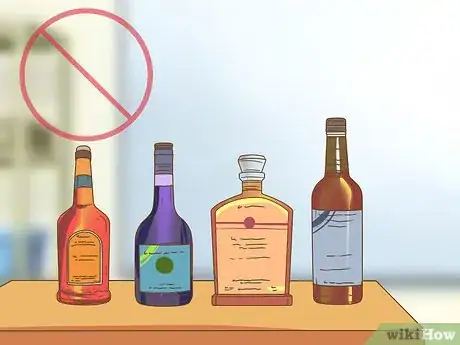
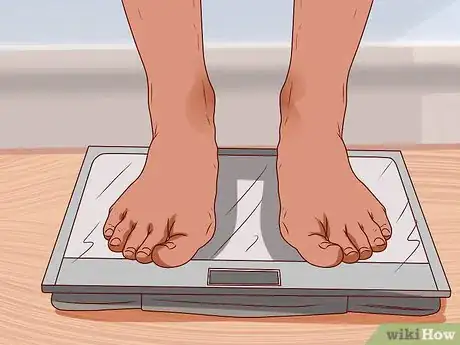
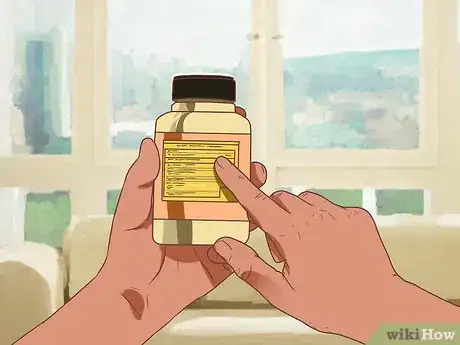
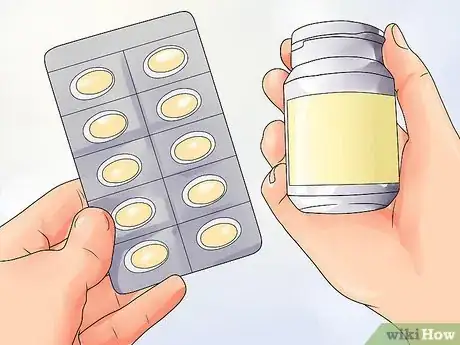
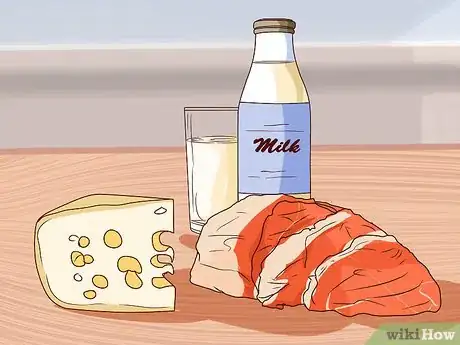
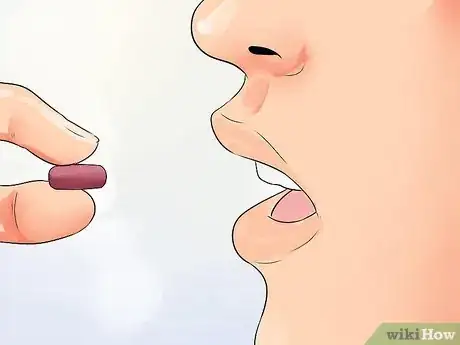



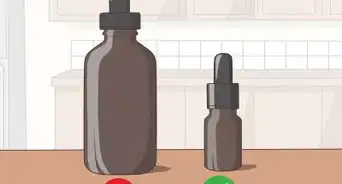

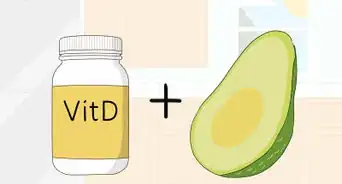




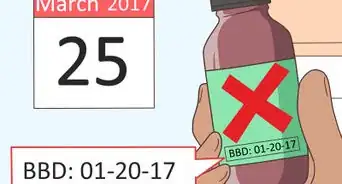












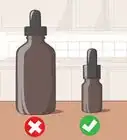



































Medical Disclaimer
The content of this article is not intended to be a substitute for professional medical advice, examination, diagnosis, or treatment. You should always contact your doctor or other qualified healthcare professional before starting, changing, or stopping any kind of health treatment.
Read More...